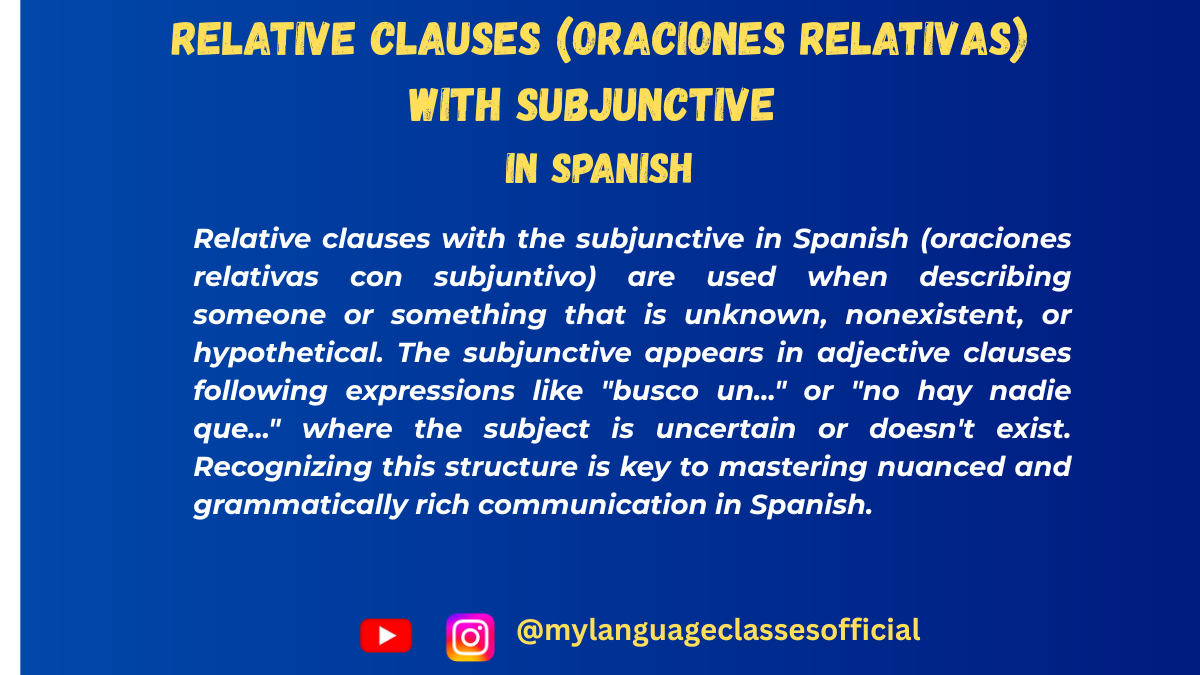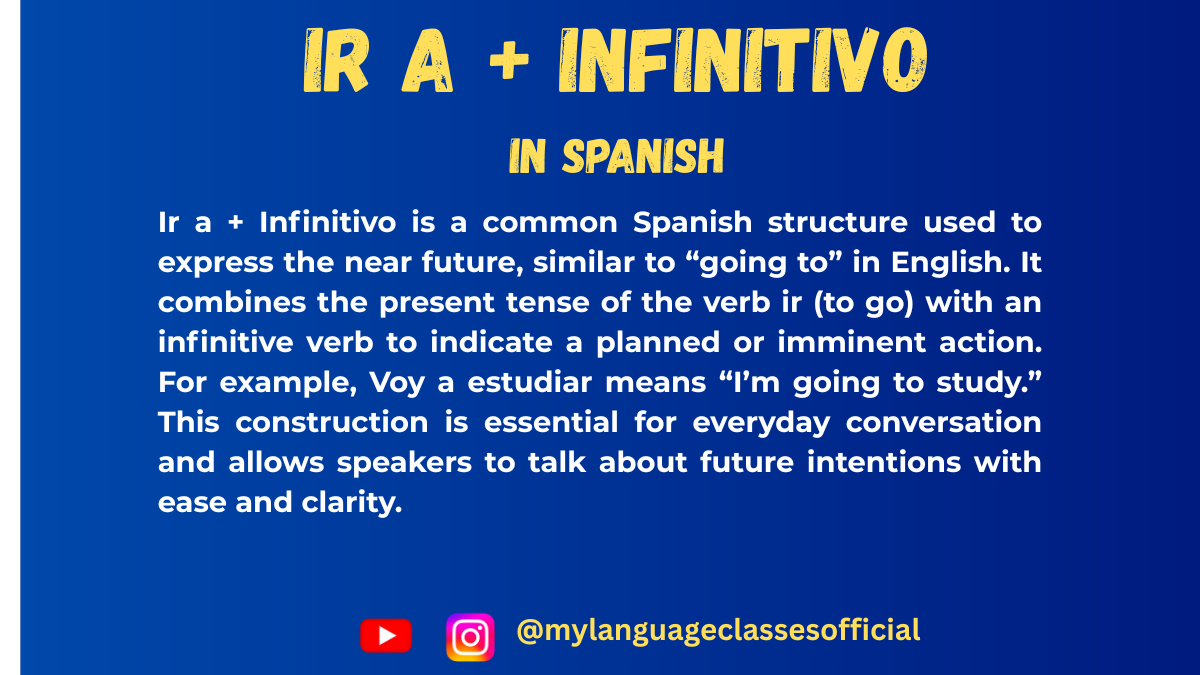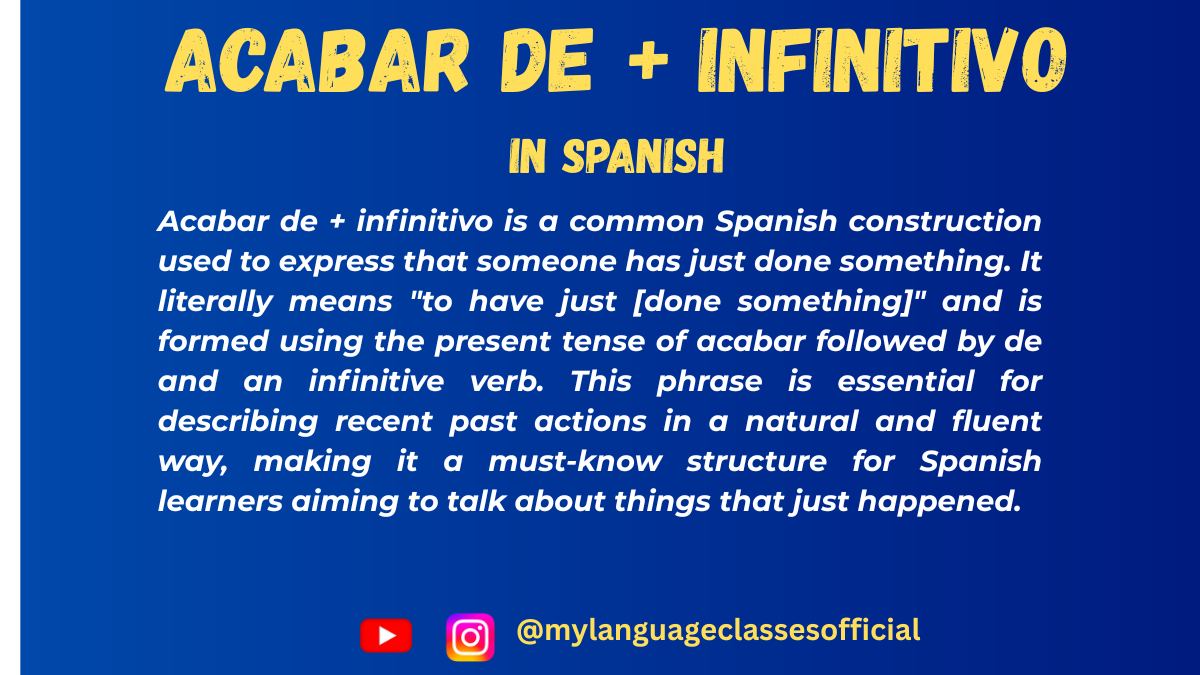Your cart is currently empty!
Tag: spanish irregular verbs
-

Relative Clauses(oraciones relativas) with Subjunctive in Spanish
Relative clauses, or oraciones relativas, are an essential part of Spanish grammar. They allow us to add extra information about a noun without starting a new sentence. When combined with the subjunctive mood, relative clauses take on a more nuanced meaning, often expressing uncertainty, doubt, or hypothetical situations. Mastering this structure is key to sounding more fluent and natural in Spanish.
In this blog post, we’ll explore everything you need to know about relative clauses with the subjunctive, including common expressions, conjugation rules, and practical examples.
Common Expressions Using Relative Clauses with Subjunctive
Here are some everyday expressions that use relative clauses with the subjunctive. These are frequently used in conversational Spanish:
- Busco a alguien que pueda ayudarme.
(I’m looking for someone who can help me.) - Necesito un libro que sea interesante.
(I need a book that is interesting.) - Quiero un lugar donde pueda relajarme.
(I want a place where I can relax.) - No hay nadie que sepa la respuesta.
(There’s no one who knows the answer.) - Espero encontrar algo que me guste.
(I hope to find something that I like.) - Busco un profesor que hable español.
(I’m looking for a teacher who speaks Spanish.) - No conozco a nadie que haya estado allí.
(I don’t know anyone who has been there.) - Quiero un coche que no gaste mucha gasolina.
(I want a car that doesn’t use much gas.) - Necesito una solución que funcione.
(I need a solution that works.) - Es difícil encontrar a alguien que entienda esto.
(It’s hard to find someone who understands this.)
Things to Keep in Mind
When using relative clauses with the subjunctive, there are a few key points to remember:
- Articles and Agreement: The definite (el, la, los, las) or indefinite (un, una, unos, unas) articles must agree in gender and number with the noun they modify.
Example: Busco una casa que tenga jardín. (I’m looking for a house that has a garden.) - Gender and Plurality: Adjectives and verbs within the relative clause must match the noun in gender and number.
Example: Necesito unos zapatos que sean cómodos. (I need shoes that are comfortable.) - Use of “Que”: The relative pronoun que is the most common connector in these clauses.
Example: Quiero un perro que sea tranquilo. (I want a dog that is calm.) - Indefinite or Non-Specific Nouns: The subjunctive is used when the noun is indefinite or not specific. If the noun is specific, the indicative is used instead.
Example: Subjunctive: Busco un libro que sea bueno. (I’m looking for a book that is good.)
Indicative: Este es el libro que es bueno. (This is the book that is good.) - Expressing Doubt or Uncertainty: The subjunctive is often used to express doubt, uncertainty, or hypothetical situations.
Example: No hay nadie que lo sepa. (There’s no one who knows it.)
When to Use Relative Clauses with Subjunctive
Relative clauses with the subjunctive are used in the following situations:
- When the Antecedent is Unknown or Non-Existent:
Example: Busco un médico que hable inglés. (I’m looking for a doctor who speaks English.) - When Expressing Doubt or Uncertainty:
Example: No creo que haya alguien que pueda hacerlo. (I don’t think there’s anyone who can do it.) - When the Antecedent is Indefinite:
Example: Necesito una casa que tenga tres habitaciones. (I need a house that has three bedrooms.) - When Making Hypothetical Statements:
Example: Quiero un trabajo que me permita viajar. (I want a job that allows me to travel.)
Conjugation of Regular Verbs in Relative Clauses with Subjunctive
To form the subjunctive in relative clauses, follow these steps for regular verbs:
1. -AR Verbs (e.g., hablar):
- yo: hable
- tú: hables
- él/ella/usted: hable
- nosotros/nosotras: hablemos
- vosotros/vosotras: habléis
- ellos/ellas/ustedes: hablen
2. -ER Verbs (e.g., comer):
- yo: coma
- tú: comas
- él/ella/usted: coma
- nosotros/nosotras: comamos
- vosotros/vosotras: comáis
- ellos/ellas/ustedes: coman
3. -IR Verbs (e.g., vivir):
- yo: viva
- tú: vivas
- él/ella/usted: viva
- nosotros/nosotras: vivamos
- vosotros/vosotras: viváis
- ellos/ellas/ustedes: vivan
Irregular Verbs and Their Conjugation
Here are some common irregular verbs in the subjunctive mood:
- Ser (to be):
- yo: sea
- tú: seas
- él/ella/usted: sea
- nosotros/nosotras: seamos
- vosotros/vosotras: seáis
- ellos/ellas/ustedes: sean
- Ir (to go):
- yo: vaya
- tú: vayas
- él/ella/usted: vaya
- nosotros/nosotras: vayamos
- vosotros/vosotras: vayáis
- ellos/ellas/ustedes: vayan
- Tener (to have):
- yo: tenga
- tú: tengas
- él/ella/usted: tenga
- nosotros/nosotras: tengamos
- vosotros/vosotras: tengáis
- ellos/ellas/ustedes: tengan
10 Regular Verbs in Relative Clauses with Subjunctive
Verb Subjunctive Form Example Sentence Meaning Hablar hable Busco alguien que hable francés. I’m looking for someone who speaks French. Comer coma Necesito un restaurante que coma vegano. I need a restaurant that serves vegan food. Vivir viva Quiero un lugar donde viva tranquilo. I want a place where I can live peacefully. Estudiar estudie Busco un profesor que estudie literatura. I’m looking for a teacher who studies lit. Trabajar trabaje Necesito un empleado que trabaje duro. I need an employee who works hard. Escuchar escuche Quiero una canción que escuche relajante. I want a song that sounds relaxing. Escribir escriba Busco un libro que escriba García Márquez. I’m looking for a book written by García Márquez. Leer lea Necesito un artículo que lea interesante. I need an article that reads interesting. Correr corra Quiero un parque donde corra seguro. I want a park where I can run safely. Cocinar cocine Busco un chef que cocine comida mexicana. I’m looking for a chef who cooks Mexican food.
More Example Sentences
- Espero encontrar un hotel que esté cerca de la playa.
(I hope to find a hotel that is near the beach.) - No hay nadie que quiera ayudarme.
(There’s no one who wants to help me.) - Quiero un vestido que sea elegante.
(I want a dress that is elegant.) - Busco un amigo que tenga intereses similares.
(I’m looking for a friend who has similar interests.) - Necesito un teléfono que funcione bien.
(I need a phone that works well.) - No conozco a nadie que haya viajado allí.
(I don’t know anyone who has traveled there.) - Quiero un trabajo que me permita ser creativo.
(I want a job that allows me to be creative.) - Es difícil encontrar un lugar que sea perfecto.
(It’s hard to find a place that is perfect.) - Busco una película que sea emocionante.
(I’m looking for a movie that is exciting.) - Necesito una solución que resuelva el problema.
(I need a solution that solves the problem.)
Fill in the Blanks
- Busco un libro que _____ (ser) interesante.
- Necesito un coche que no _____ (gastar) mucha gasolina.
- Quiero un lugar donde _____ (poder) relajarme.
- No hay nadie que _____ (saber) la respuesta.
- Espero encontrar algo que me _____ (gustar).
- Busco un profesor que _____ (hablar) español.
- No conozco a nadie que _____ (haber) estado allí.
- Quiero un trabajo que me _____ (permitir) viajar.
- Necesito una solución que _____ (funcionar).
- Es difícil encontrar a alguien que _____ (entender) esto.
Answers:
- sea
- gaste
- pueda
- sepa
- guste
- hable
- haya
- permita
- funcione
- entienda
Conclusion
Mastering relative clauses with the subjunctive in Spanish opens up a world of expressive possibilities. Whether you’re describing hypothetical situations, expressing doubt, or seeking something specific, this grammatical structure is indispensable. By practicing the conjugations, memorizing common expressions, and understanding the nuances, you’ll be well on your way to sounding like a native speaker. Keep practicing, and soon you’ll be using relative clauses with the subjunctive effortlessly in your conversations!
If you enjoyed this lesson, be sure to check out more posts like this on my blog at My Language Classes. Don’t forget to subscribe my YouTube channel and follow me on Instagram for the latest language learning tips and lessons. Leave a comment below to share your thoughts, or ask any questions you have about nouns.
Happy learning! 😊
- 100 Spanish Example Sentences
- 100 Spanish Fill-in-the-Blanks Exercises
- 100 Spanish Vocabulary Lists
- Spanish – Advanced
- Spanish – Beginner
- Spanish – Intermediate
- Busco a alguien que pueda ayudarme.
-

Mastering “Ir a + Infinitivo” in Spanish
In Spanish, the structure “Ir a + infinitivo” is one of the most commonly used grammatical constructions to express future actions or intentions. It is the equivalent of saying “going to + verb” in English. For example, “Voy a comer” translates to “I am going to eat.” This structure is straightforward, versatile, and essential for everyday communication in Spanish. Whether you’re planning to travel, make plans with friends, or simply talk about your future goals, mastering “Ir a + infinitivo” is a must.
In this blog post, we’ll break down everything you need to know about this structure, including common expressions, conjugation rules, irregular verbs, and practical examples. Let’s dive in!
Common Expressions Using “Ir a + Infinitivo”
Here’s a list of common expressions using “Ir a + infinitivo” that you’ll hear in day-to-day conversations:
- Voy a comer – I am going to eat.
- Vamos a bailar – We are going to dance.
- Va a llover – It is going to rain.
- Vas a estudiar – You are going to study.
- Van a viajar – They are going to travel.
- Voy a trabajar – I am going to work.
- Vamos a cenar – We are going to have dinner.
- Va a llegar tarde – He/She is going to arrive late.
- Vas a ganar – You are going to win.
- Van a comprar – They are going to buy.
These expressions are used frequently in Spanish, making them essential for learners to practice and memorize.
Things to Keep in Mind
When using “Ir a + infinitivo,” there are a few key points to remember:
- Articles and Gender: Unlike nouns, infinitives (the base form of verbs) do not require articles or change according to gender. For example, “Voy a leer” (I am going to read) remains the same regardless of the speaker’s gender.
- Plurality: The verb “ir” conjugates based on the subject, but the infinitive remains unchanged. For example, “Voy a correr” (I am going to run) vs. “Vamos a correr” (We are going to run).
- Contractions: In Spanish, “a” (to) and “el” (the) combine to form “al.” For example, “Voy al parque” (I am going to the park). However, this contraction does not apply to infinitives.
- Pronunciation: The “a” in “Ir a + infinitivo” is pronounced softly, almost blending with the infinitive.
When to Use “Ir a + Infinitivo”
The structure “Ir a + infinitivo” is used in the following situations:
- Future Plans: To talk about future actions or plans.
- Example: Voy a visitar a mi abuela mañana. (I am going to visit my grandmother tomorrow.)
- Predictions: To make predictions based on current evidence.
- Example: Va a llover esta tarde. (It is going to rain this afternoon.)
- Intentions: To express intentions or goals.
- Example: Voy a aprender español este año. (I am going to learn Spanish this year.)
- Immediate Future: To describe actions that will happen soon.
- Example: Vamos a salir en cinco minutos. (We are going to leave in five minutes.)
Conjugation
To form “Ir a + infinitivo,” you need to conjugate the verb “ir” (to go) according to the subject, followed by “a” and the infinitive of the main verb. Here’s how to conjugate “ir” in the present tense:
Pronoun Conjugation of “Ir” Yo Voy Tú Vas Él/Ella/Usted Va Nosotros/Nosotras Vamos Vosotros/Vosotras Vais Ellos/Ellas/Ustedes Van Regular Verbs
Regular verbs in Spanish fall into three categories based on their infinitive endings: -ar, -er, and -ir. Here’s how “Ir a + infinitivo” works with each category:
- -AR Verbs:
- Example: Voy a hablar. (I am going to speak.)
- -ER Verbs:
- Example: Vas a comer. (You are going to eat.)
- -IR Verbs:
- Example: Va a vivir. (He/She is going to live.)
Irregular Verbs
Irregular verbs do not follow the standard conjugation patterns, but their infinitives remain unchanged when used with “Ir a + infinitivo.” Here are some common irregular verbs and their conjugations:
- Hacer (to do/make):
- Voy a hacer la tarea. (I am going to do the homework.)
- Tener (to have):
- Vas a tener suerte. (You are going to have luck.)
- Decir (to say/tell):
- Va a decir la verdad. (He/She is going to tell the truth.)
- Venir (to come):
- Vamos a venir tarde. (We are going to come late.)
- Poner (to put):
- Van a poner la mesa. (They are going to set the table.)
Verbs in “Ir a + Infinitivo”
Verb (Infinitive) “Ir a + Infinitivo” Form Example Sentence 1 Example Sentence 2 Hablar (to speak) Voy a hablar Voy a hablar con él. (I am going to speak with him.) Vas a hablar en público. (You are going to speak in public.) Comer (to eat) Vamos a comer Vamos a comer pizza. (We are going to eat pizza.) Va a comer temprano. (He/She is going to eat early.) Vivir (to live) Van a vivir Van a vivir en España. (They are going to live in Spain.) Voy a vivir solo. (I am going to live alone.) Hacer (to do/make) Vas a hacer Vas a hacer ejercicio. (You are going to exercise.) Voy a hacer un pastel. (I am going to make a cake.) Tener (to have) Va a tener Va a tener una fiesta. (He/She is going to have a party.) Vamos a tener un examen. (We are going to have an exam.) Decir (to say) Voy a decir Voy a decir la verdad. (I am going to tell the truth.) Vas a decir algo importante. (You are going to say something important.) Venir (to come) Vamos a venir Vamos a venir mañana. (We are going to come tomorrow.) Va a venir tarde. (He/She is going to come late.) Poner (to put) Van a poner Van a poner la mesa. (They are going to set the table.) Voy a poner música. (I am going to put on music.) Salir (to leave) Vas a salir Vas a salir temprano. (You are going to leave early.) Voy a salir con amigos. (I am going to go out with friends.) Ver (to see) Va a ver Va a ver una película. (He/She is going to watch a movie.) Vamos a ver el partido. (We are going to watch the game.)
More Example Sentences
- Voy a estudiar para el examen. (I am going to study for the exam.)
- Vas a comprar un regalo. (You are going to buy a gift.)
- Va a escribir una carta. (He/She is going to write a letter.)
- Vamos a viajar a México. (We are going to travel to Mexico.)
- Van a jugar fútbol. (They are going to play soccer.)
- Voy a cocinar la cena. (I am going to cook dinner.)
- Vas a aprender español. (You are going to learn Spanish.)
- Va a llover esta noche. (It is going to rain tonight.)
- Vamos a bailar en la fiesta. (We are going to dance at the party.)
- Van a construir una casa. (They are going to build a house.)
Fill in the Blanks
- Voy a ___ (eat) pizza.
- Vamos a ___ (study) juntos.
- Va a ___ (rain) mañana.
- Vas a ___ (buy) un coche.
- Van a ___ (travel) a Europa.
- Voy a ___ (do) ejercicio.
- Vamos a ___ (have dinner) en un restaurante.
- Va a ___ (write) un libro.
- Vas a ___ (learn) español.
- Van a ___ (build) una casa.
Answers:
- comer
- estudiar
- llover
- comprar
- viajar
- hacer
- cenar
- escribir
- aprender
- construir
Conclusion
Mastering “Ir a + infinitivo” is a game-changer for anyone learning Spanish. It’s a simple yet powerful structure that allows you to express future plans, intentions, and predictions with ease. By practicing the conjugations, memorizing common expressions, and using the examples provided, you’ll be well on your way to sounding like a native speaker.
So, what are you waiting for? ¡Vamos a practicar! (Let’s practice!)
¡Hasta luego! (See you later!)
If you enjoyed this lesson, be sure to check out more posts like this on my blog at My Language Classes. Don’t forget to subscribe my YouTube channel and follow me on Instagram for the latest language learning tips and lessons. Leave a comment below to share your thoughts, or ask any questions you have about nouns.
Happy learning! 😊
- 100 Spanish Example Sentences
- 100 Spanish Fill-in-the-Blanks Exercises
- 100 Spanish Vocabulary Lists
- Spanish – Advanced
- Spanish – Beginner
- Spanish – Intermediate

